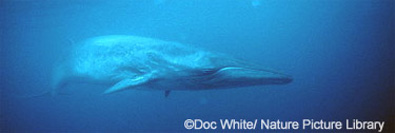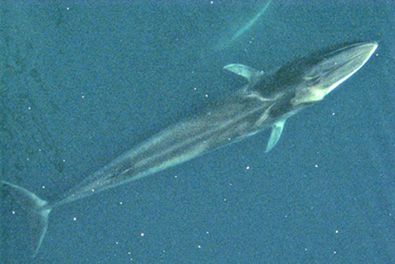A Japanese whaling fleet embarked on a three month whaling expedition yesterday that aims to kill 1000 whales. The majority of the proposed haul is said to consist of minke whales however the endangered Humpback whale and Top 100 EDGE species, the Fin whale have also been targeted.
Environmentalists are infuriated by this proposed “scientific” expedition which would see harvested whale meat sold on to the Japanese market with any profits made being used to fund “future research”.
This expedition would be the largest haul in the south pacific and would not only see an increase in the amount of Minke whales killed, but would also for the first time since the global ban in the mid-1960, harpoon Humpback and Fin whales.
Commercial whaling was halted in 1986; however Japan is permitted to kill whales in the name of scientific research.
The Fin whale is the second largest animal on the planet and is listed as Endangered on the IUCN Red List. Known as the “greyhound of the sea” the species is capable of reaching speeds of up to 40km/hour which, until the development of modern commercial whale hunting techniques, allowed populations to escape the early whaling industry. However, although speed may have helped them in the past, Fin whale populations were severely reduced worldwide between 1904 and 1979 (a reduction of around 750 000 individuals) due primarily to commercial whaling. Today, their current status is poorly known especially in areas outside the North Atlantic where studies have shown there to be a series of populations with limited genetic exchange.
Even with a global ban on the hunting of the Fin whale, these endangered animals are affected by additional threats such as entanglement in fishing gear, pollution (including noise pollution, increasing amounts of plastic debris at sea, oil spills and dumping of industrial wastes), disturbance from seismic operations and a decrease in krill as a result of climate change.
Although the whaling fleet was given a hearty send off by local well-wishers, the welcome they may encounter out at sea from anti-whaling activists such as Greenpeace may be significantly less cheery. It is suspected that the whaling ships are to be met with a variety of blocking tactics and disruptive plans.
Japan backs whaling as a cultural tradition and argues that the number of whales in the proposed hunt is sustainable. However, many scientists argue that the lack of understanding of the migration pattern of the Fin whale, coupled with population surveys that are unclear, makes estimating the historical and current population levels difficult and contentious. Further, due to the long history of hunting Fin whales, pre-exploitation population levels are hard to accurately determine. However, such estimates are crucial in order to measure the rate of recovery of the species.
For more information see:
Https://www.timesonline.co.uk/tol/news/world/asia/article2896712.ece
Https://news.bbc.co.uk/1/hi/world/asia-pacific/7099720.stm
Https://www.ifaw.org/ifaw/general/default.aspx?oid=223443


